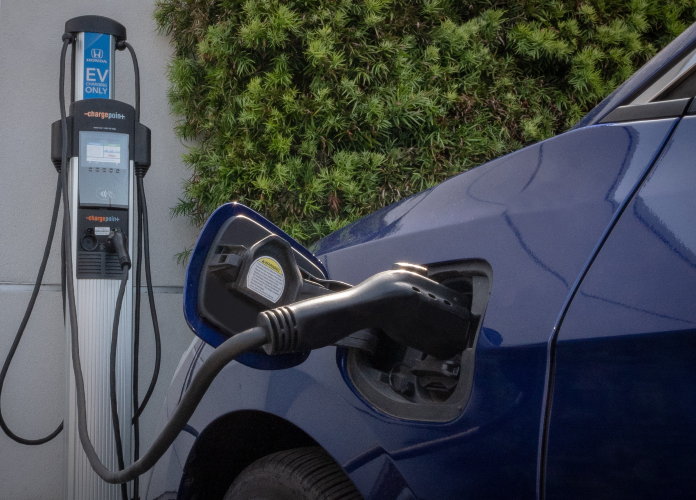The bill introduced by Rep. Dan Kildee, D-Mich., would extend the $7,500 EV tax credit through 2031 but limit it to sedans costing less than $55,000, while price tags for vans, SUVs and pickup trucks could not exceed $64,000, $69,000, and $74,000, respectively.
The tax credit would go up by $4,500 if the EV meets “domestic assembly qualifications” in which “final assembly of such vehicle occurs at a plant, factory or other place which is operating under a collective bargaining agreement,” according to the bill.
Torrance-based American Honda Motor Co. Inc. said in a statement that it was “disappointed” in the proposal. It described the union portion of the proposed legislation as “unfair.”
Honda, which operates nonunion factories in Alabama, Georgia, Indiana and Ohio, announced in April that it expects battery electric and fuel cell electric vehicles to comprise 40% of its sales in North America by 2030 and 100% by 2040.
“If Congress is serious about addressing the climate crisis, as well as its goal to see these vehicles built in America, it should treat all EVs made by U.S. auto workers fairly and equally,” Honda executives said. “We urge Congress to remove discriminatory language tying unionization to incentives from its budget reconciliation proposal.”
Honda’s first battery-powered electric SUV, Prologue, is on track to launch in early 2024, along with an all-electric Acura SUV.
Both vehicles will feature a modular EV platform and batteries built by General Motors Co., with Honda developing the exterior and interior designs. The two competitors announced the EV partnership in November, citing the potential for substantial cost efficiencies in North America.
The new legislation would also remove the cap that provided credits for vehicles made by manufacturers with less than 200,000 units sold, which excluded Detroit-based GM and Palo Alto-based Tesla Inc. There’s also a credit of up to $2,500 for buying used EVs.
Consumers looking to buy vehicles from Fisker Inc. may benefit from the EV bill should the company’s U.S.-based manufacturing operations materialize. The Manhattan Beach-based automaker signed a memorandum of understanding with Foxconn Technology Group to jointly develop a “breakthrough electric vehicle” it named Personal Electric Automotive Revolution, or Pear, which is proposed to be built by Foxconn and sold under the Fisker brand in North America, China and Europe. Fisker is reviewing locations to manufacture Pear in the United States, which may include Foxconn’s site in Mt. Pleasant, Wis.
Fisker also plans to launch its Ocean SUV in late 2022. The Ocean will be made by Magna International Inc. at Magna’s plant in Graz, Austria. While Ocean’s price tag of $37,500 is well below the $55,000 limit, it does not meet the “domestic assembly qualification” stipulated in the new budget bill.
Canoo Inc. in Torrance and Gardena-based Faraday Future Intelligent Electric Inc. are in a similar boat with offshore manufacturing in place while the domestic operations are underway.
Canoo plans to open an electric vehicle plant in Oklahoma by 2023. It hired Netherlands-based independent contract factory VDL Nedcar to produce vehicles for the U.S. and European markets in the meantime.
Faraday is investing about $90 million to remodel a factory in Hanford, about 200 miles north of Los Angeles, where it plans to build its FF 91 crossover, scheduled to launch in 2022. The facility is expected to come online by year-end and have the capacity to produce 10,000 vehicles daily. Another manufacturing plant in South Korea — a former GM factory — is slated to open in 2023 and would produce up to 270,000 vehicles a year.

